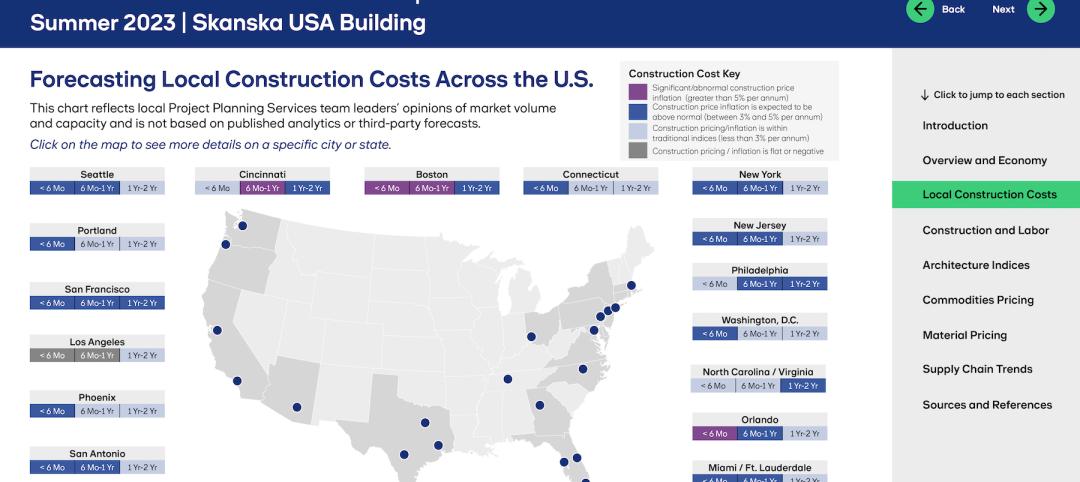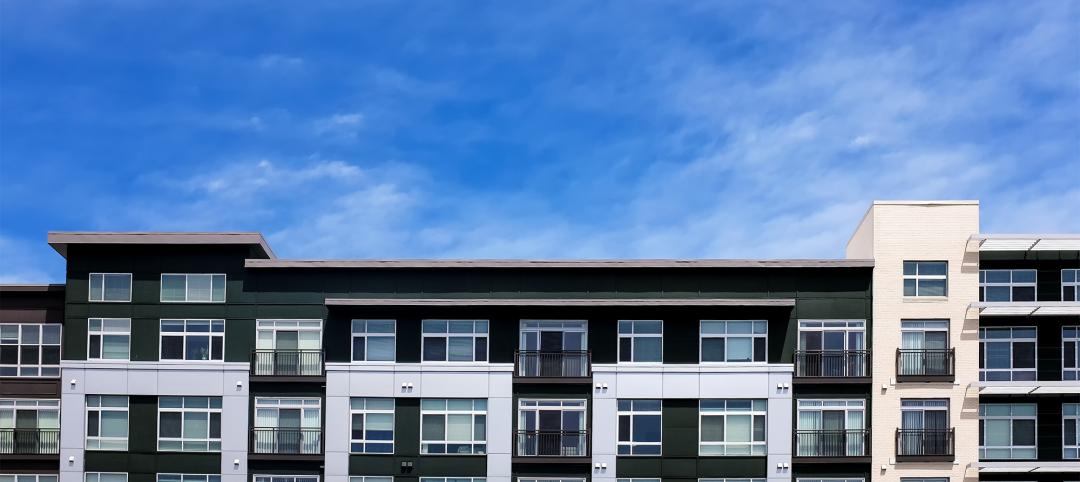Construction contractors remained confident during the second quarter of 2018, according to the latest Construction Confidence Index released today by Associated Builders and Contractors.
More than three in four construction firms expect that sales will continue to rise over the next six months, while three in five expect higher profit margins. More than seven in 10 expect to bolster staffing levels, though that proportion has fallen relative to the previous quarter, perhaps in part due to the skilled labor shortage in the United States. All three key components measured by the survey—sales, profit margins, and staffing levels—remain well above the diffusion index threshold of 50, signaling ongoing expansion in construction activity.
The survey found:
- CCI for sales expectations increased from 72.2 to 72.6 during the second quarter of 2018.
- CCI for profit margin expectations increased from 63.4 to 64.5.
- CCI for staffing levels decreased from 70.2 to 69.5 but remains elevated by historical standards.
“The U.S. economy remains steady, creating opportunities for general and subcontractors alike,” said ABC Chief Economist Anirban Basu. “Recently, infrastructure has been one of the primary drivers and, despite the absence of a federal infrastructure package, state and local governments have expanded their capital outlays. A number of states are also now running hefty budget surpluses, creating the capital and confidence necessary to drive public construction forward. As evidence, construction spending in the water supply category is up 29% on a year-over-year basis, conservation and development (e.g. flood control) by 24%, transportation by nearly 21%, public safety-related spending by 17%, and sewage and waste disposal by 11%.
“The confidence expressed by contractors is consistent with a number of other leading indicators, including the Architecture Billings Index and ABC’s Construction Backlog Indicator,” said Basu. “With financial markets surging, the nation producing a record number of available job openings, and both consumer and business confidence elevated, chances for a significant slowdown in nonresidential construction activity in late 2018 and into 2019 are remote. That helps explain why only about 6% of contractors expect sales to decline over the next six months.
“The longer-term outlook is not as clear,” said Basu. “Interest rates are rising, construction workers and materials have become more expensive and asset prices have become further elevated and therefore increasingly vulnerable to correction. There is also some evidence of overbuilding in certain real estate segments in some communities. Tariff increases and associated retaliation serve as yet another threat to longer-term economic momentum, as do faltering government pension funds. But for now, construction firms can expect to remain busy improving the nation’s built environment. A shortage of skilled workers remains the primary issue, which is expected to continue as more workers retire and insufficient workers join the skilled construction trades.”
CCI is a diffusion index. Readings above 50 indicate growth, while readings below 50 are unfavorable.
Related Stories
Apartments | Aug 22, 2023
Key takeaways from RCLCO's 2023 apartment renter preferences study
Gregg Logan, Managing Director of real estate consulting firm RCLCO, reveals the highlights of RCLCO's new research study, “2023 Rental Consumer Preferences Report.” Logan speaks with BD+C's Robert Cassidy.
Market Data | Aug 18, 2023
Construction soldiers on, despite rising materials and labor costs
Quarterly analyses from Skanska, Mortenson, and Gordian show nonresidential building still subject to materials and labor volatility, and regional disparities.
Apartments | Aug 14, 2023
Yardi Matrix updates near-term multifamily supply forecast
The multifamily housing supply could increase by up to nearly 7% by the end of 2023, states the latest Multifamily Supply Forecast from Yardi Matrix.
Hotel Facilities | Aug 2, 2023
Top 5 markets for hotel construction
According to the United States Construction Pipeline Trend Report by Lodging Econometrics (LE) for Q2 2023, the five markets with the largest hotel construction pipelines are Dallas with a record-high 184 projects/21,501 rooms, Atlanta with 141 projects/17,993 rooms, Phoenix with 119 projects/16,107 rooms, Nashville with 116 projects/15,346 rooms, and Los Angeles with 112 projects/17,797 rooms.
Market Data | Aug 1, 2023
Nonresidential construction spending increases slightly in June
National nonresidential construction spending increased 0.1% in June, according to an Associated Builders and Contractors analysis of data published today by the U.S. Census Bureau. Spending is up 18% over the past 12 months. On a seasonally adjusted annualized basis, nonresidential spending totaled $1.07 trillion in June.
Hotel Facilities | Jul 27, 2023
U.S. hotel construction pipeline remains steady with 5,572 projects in the works
The hotel construction pipeline grew incrementally in Q2 2023 as developers and franchise companies push through short-term challenges while envisioning long-term prospects, according to Lodging Econometrics.
Hotel Facilities | Jul 26, 2023
Hospitality building construction costs for 2023
Data from Gordian breaks down the average cost per square foot for 15-story hotels, restaurants, fast food restaurants, and movie theaters across 10 U.S. cities: Boston, Chicago, Las Vegas, Los Angeles, Miami, New Orleans, New York, Phoenix, Seattle, and Washington, D.C.
Market Data | Jul 24, 2023
Leading economists call for 2% increase in building construction spending in 2024
Following a 19.7% surge in spending for commercial, institutional, and industrial buildings in 2023, leading construction industry economists expect spending growth to come back to earth in 2024, according to the July 2023 AIA Consensus Construction Forecast Panel.
Contractors | Jul 13, 2023
Construction input prices remain unchanged in June, inflation slowing
Construction input prices remained unchanged in June compared to the previous month, according to an Associated Builders and Contractors analysis of U.S. Bureau of Labor Statistics Producer Price Index data released today. Nonresidential construction input prices were also unchanged for the month.
Contractors | Jul 11, 2023
The average U.S. contractor has 8.9 months worth of construction work in the pipeline, as of June 2023
Associated Builders and Contractors reported that its Construction Backlog Indicator remained unchanged at 8.9 months in June 2023, according to an ABC member survey conducted June 20 to July 5. The reading is unchanged from June 2022.

















